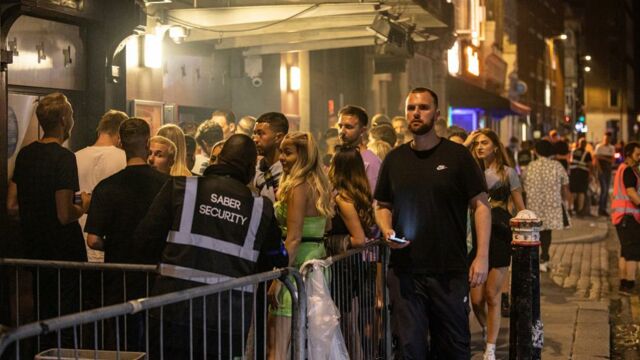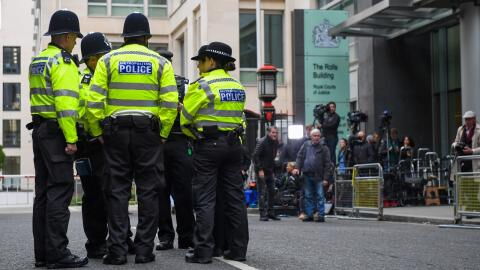It seems that women’s safety on a night out has once again come into question as Brits are reporting a concerning new spiking trend that sees people being injected in busy, crowded spaces without their knowledge.
Discover our latest podcast
Spiking was once a horrid trend limited only to our drinks. Of course, we all adapted to the violent occurrences by becoming hyper-vigilant with our beverages, never leaving our drinks unattended and even wearing a specific kind of nail polish that would change colour once in contact with date rape drugs.
However, incidences in Nottingham, Leeds, Edinburgh, Exeter and Northern Ireland have all seen a new, horrifying spate of spikings emerge where targets - mainly female students - are being injected with date rape drugs in busy nightclubs and parties.
But it's not just needle spiking that's been on the rise, The National Police Chiefs’ Council (NPCC) revealed that aside from the 24 reports of spiking via injection, there have been around 140 confirmed reports of drink spiking through September and October.
Nottinghamshire police also confirmed that they have been investigating at least 12 incidences of needle spiking in less than a month. They have also arrested two men aged 18 and 19 on 'suspicion of conspiracy to administer poison with intent to injure, annoy or aggrieve.' Both men have been released under investigation and police have explained the arrests have not been linked to specific spiking allegations.
What is needle spiking?
Spiking injections, also known as needle spiking, is a recent phenomenon where an unsuspecting person is injected with drugs. Police are still carrying out investigations on the incidents reported, but it is believed that the drugs used are common ‘date rape’ drugs such as Rohypnol (roofie) or Gamma Hydroxybutyrate (GHB).
Reports of needle spiking have been popping up in nightclubs where the crowded areas, combined with excessive stimuli and drinking, mean people could be injected without noticing until much later.
Those who have been needle spiked report feeling suddenly unwell, unable to move their limbs properly, and blacking out until the following morning.
After a night out, victims of needle spiking have reported waking up the next day with a painful pinprick on their body, sometimes surrounded by a bruise.
Sarah Buckle, a needle spiking victim and second-year student at Nottingham University, told Sky News:
The bruise was getting darker over time, and my hand was hurting more and more. The nurse told me, "It seems as if you’ve been spiked possibly by a needle."
What actions are being taken against needle spiking?
After the coronavirus pandemic put the UK’s nightlife on hold for much of the last year, the reopening of clubs was supposed to be a joyous opportunity for people to reconvene once again and blow off steam.
However, what are supposed to be nights filled with fun are now filled with fear, as needle spiking reports have left women feeling unsafe. Some are even now choosing toboycott nightclubs in demand of stricter security measures. Groups from over 50 UK universities have joined in the campaign, urging people to abstain from nightclubs on October 28th in a stand for women’s safety.
Organisers of Edinburgh’s Girls Night In campaign posted on Instagram explained: ‘We deserve to have FUN on our nights out. It’s not fair that our club experiences are being tainted by the fear, worry and anxiety that we are going to be drugged.’
A petition has now also been started, calling for nightclubs to thoroughly search patrons before entry, and has so far garnered over 160,000 signatures, which means it will be considered for debate in parliament.
Many universities across the country are also working with police and local nightlife locations to advocate for student safety. A joint statement from the University of Bristol and Bristol Students’ Union read: ‘We are aware of an increasing number of reports from across the country of young people experiencing drink spiking or even spiking via injection in bars and nightclubs.’
This is incredibly disturbing, particularly as this is the first time a lot of young people have been able to get out and have fun following months of lockdowns and restrictions on their freedom.
The statement continued: ‘We stand together in condemning such appalling behaviour. To be clear, victims of drink spiking are not the ones at fault, and our students should be able to enjoy themselves without fear.’















